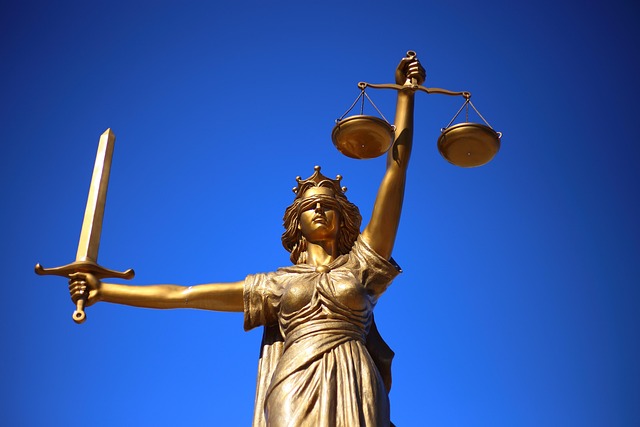Consumer Protection Lawsuits and Criminal Law share a focus on compensation to safeguard consumers. These legal tools deter unethical practices, provide restitution, and ensure accountability. Calculating damages involves balancing fairness and justice, considering financial losses, emotional distress, and societal impact. High-stakes cases lead to business reforms, legislative changes, and increased corporate transparency, fostering trust and integrity.
“Criminal law cases, particularly those involving consumer protection lawsuits, play a pivotal role in shaping fair business practices. This article delves into the intricate world of consumer rights and justice. We explore ‘Understanding Consumer Protection Lawsuits’ and their impact on holding wrongdoers accountable.
A key aspect discussed is ‘The Role of Compensation,’ focusing on how it acts as a powerful incentive for resolution. Additionally, we examine ‘Calculating Damages’ to ensure fairness and just recompense for victims.
Finally, we analyze the broader effects on business practices and the potential for reform, with a special emphasis on the significance of compensation in consumer protection lawsuits.”
- Understanding Consumer Protection Lawsuits
- The Role of Compensation in Resolution
- Calculating Damages: Fair and Just
- Impact on Business Practices & Reform
Understanding Consumer Protection Lawsuits

Consumer Protection Lawsuits play a crucial role in safeguarding individuals from unfair business practices. These legal actions aim to provide compensation to consumers who have been victimized by fraudulent or deceptive acts, ensuring they receive justice and restitution. When a consumer identifies potential violations of their rights, such as false advertising, product liability, or unfair pricing, they can file a lawsuit against the responsible party. This process involves navigating through all stages of the investigative and enforcement process, from gathering evidence to presenting it in court.
The goal is not only to secure compensation for the consumer but also to send a strong message to businesses that such practices will not be tolerated. Jury trials in these cases offer a transparent and democratic approach, allowing consumers to have their voices heard and ensuring that justice is served. Through successful Consumer Protection Lawsuits, individuals can recover losses, hold offenders accountable, and help prevent similar incidents from occurring in the future.
The Role of Compensation in Resolution

In Criminal Law, particularly in cases involving white-collar and economic crimes, one key aspect that often plays a significant role in resolution is compensation. When individuals or entities are victims of such offenses, they not only seek justice but also compensation for their losses. This process is crucial in ensuring that the respective business or individual is held accountable for their actions. Compensation in Consumer Protection Lawsuits, for instance, can serve as a powerful deterrent, encouraging businesses to adhere to ethical and legal practices.
Effective resolution of criminal cases often involves reaching a mutually agreeable compensation agreement. This can be beneficial for both parties—the victim receives restitution for their losses, while the defendant (for his clients) has an opportunity to avoid further legal complications or harsher penalties. Such agreements not only facilitate a smoother transition towards closure but also foster a sense of fairness and accountability in the legal landscape.
Calculating Damages: Fair and Just

Calculating damages in Criminal Law Cases, particularly within the context of Consumer Protection Lawsuits, is a delicate balance between fairness and justice. The primary goal should be to award compensation that not only rectifies the harm suffered by consumers but also serves as a deterrent for future offenses. This process involves meticulous analysis of various factors, including the extent of financial loss, emotional distress, and the impact on the respective business and broader philanthropic and political communities.
Determining appropriate damages requires a nuanced understanding of both legal principles and the specific circumstances of each case. The court must ensure that any award is proportional to the crime committed, encouraging achieving extraordinary results in consumer protection while maintaining a fair and balanced legal system. This approach not only compensates victims but also promotes ethical business practices, fostering trust and integrity within these communities.
Impact on Business Practices & Reform

The outcome of high-stakes cases in criminal law often has far-reaching implications, prompting significant changes in business practices and legislative reforms. When a company is found liable for criminal acts, it can lead to substantial compensation in consumer protection lawsuits, forcing them to reevaluate their internal policies and procedures. This ensures that businesses adhere to legal standards, protecting consumers from future harm. As a result, many organizations implement stricter compliance measures, enhancing their general criminal defense strategies to avoid similar legal pitfalls.
These cases also spark public debate and scrutiny, pushing for more transparent business operations. The complete dismissal of all charges is not the norm; instead, reform often arises from the recognition of systemic issues. This encourages proactive changes in corporate governance, with businesses investing in robust risk management and ethical guidelines to mitigate potential legal risks and maintain consumer trust.
In conclusion, understanding consumer protection lawsuits under criminal law is pivotal for businesses to ensure fair practices and foster a culture of accountability. The role of compensation plays a crucial part in resolving these cases, with calculations aimed at being both fair and just. This process not only impacts business strategies but also drives necessary reforms, ultimately benefiting consumers and ensuring their rights are protected. By examining damages and the subsequent effects on industry conduct, we can appreciate the broader implications of consumer protection laws and their role in shaping ethical business practices.






